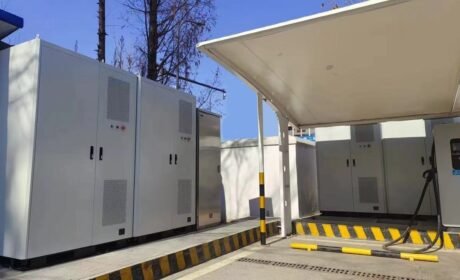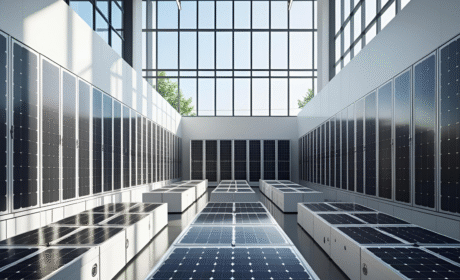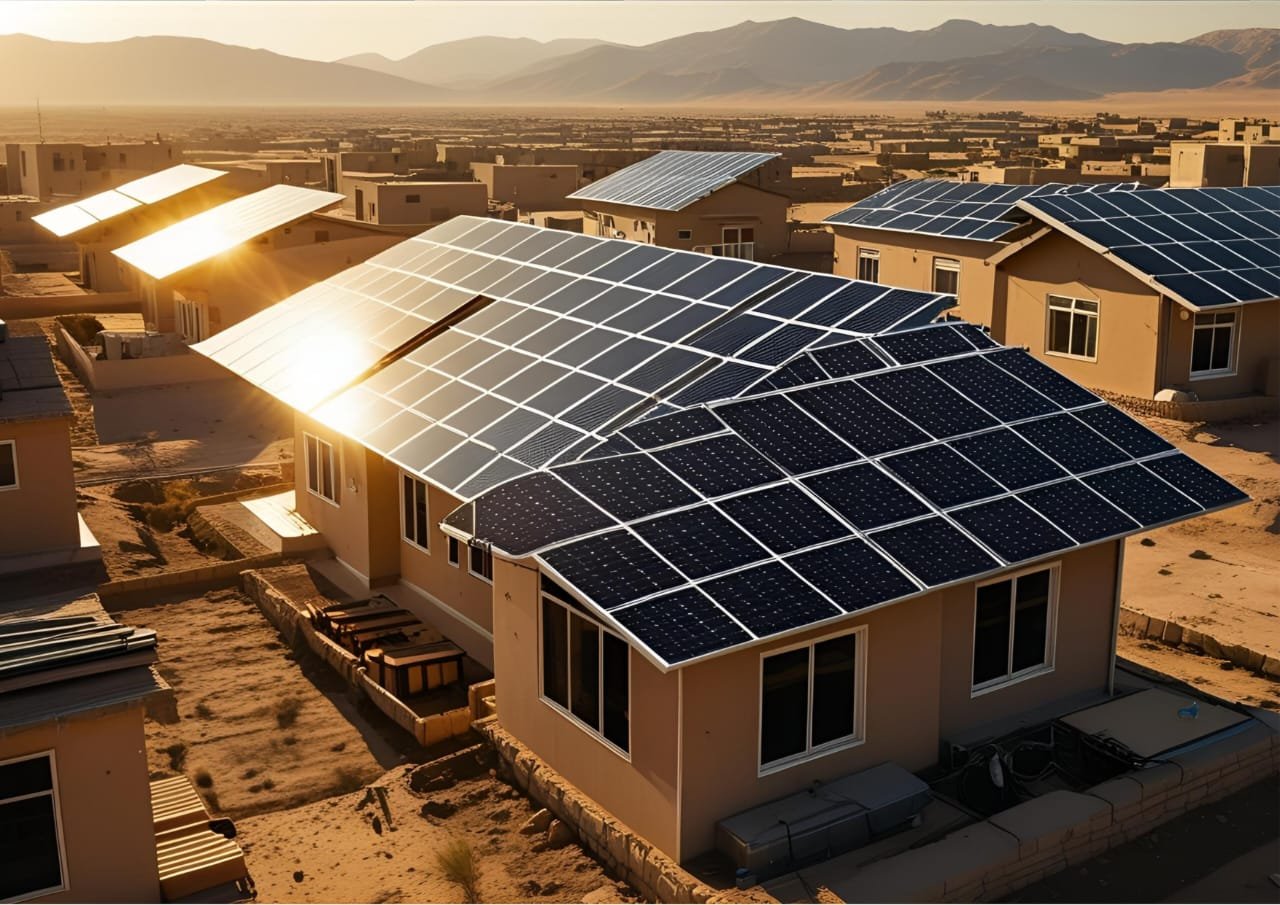
Iraq is suffering from an ongoing electricity crisis, with daily power outages exceeding 12 hours due to a significant gap between actual production, around 24,000 megawatts, and the increasing demand, which surpasses 35,000 megawatts during the summer months. With the weak supply from the national grid, many citizens resort to subscribing to diesel generators, despite their high costs and harmful impact on the environment and public health. amid these challenges, many homeowners are beginning to ask: Could a home solar system be an effective and sustainable alternative? and more importantly: Is Home Solar Energy Suitable for Your Home in Iraq?
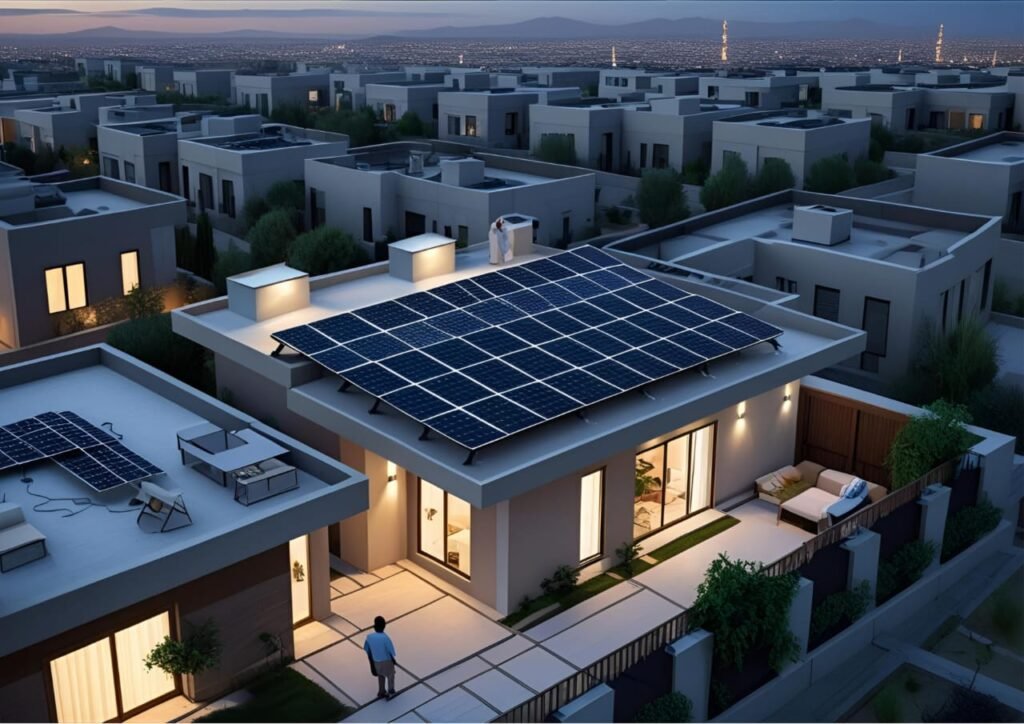
Is Home Solar Energy Suitable for Your Home in Iraq?
How Do Home Solar Energy Systems Work in Iraq?
Home solar systems consist of solar panels that convert sunlight into direct current (DC) electricity.
An inverter then transforms this DC power into alternating current (AC), which is suitable for home use.
The system first supplies electricity to household appliances, and any surplus is stored in batteries for use at night or on cloudy days. In grid-connected systems, excess electricity can be sent back to the public grid through a mechanism known as net metering.
In short:
Sunlight → Solar Panels → DC Power → Inverter → Usable Home Electricity,
With the option to store extra power or sell it back to the grid (if a support system exists).
On-Grid vs. Off-Grid Home Solar Systems:

Types of Residential Solar Systems:
On-Grid System:
Operates during the day to power the home directly, and draws electricity from the grid when needed.
It doesn’t require batteries, which lowers the installation cost.
Pros: Lower installation cost, highly efficient during the day.
Cons: Does not work during power outages unless paired with batteries.
Off-Grid System:
Fully independent, relying entirely on solar panels and batteries (and sometimes a backup generator).
Pros: Complete energy independence and continues to operate during blackouts.
Cons: Higher cost, and requires careful calculation of energy needs and local climate conditions.
Benefits of Solar Energy
Bill Reduction: Lowers your dependence on grid electricity or generator fuel, saving significant costs, especially during summer months.
Energy Independence: Provides a sustainable power source even during blackouts, especially when paired with batteries.
Environmentally Friendly: Emits no pollutants and helps reduce harmful emissions.
Low Maintenance: Requires only periodic cleaning and simple monitoring.
Increased Property Value: Enhances your home’s appeal and boosts resident comfort.
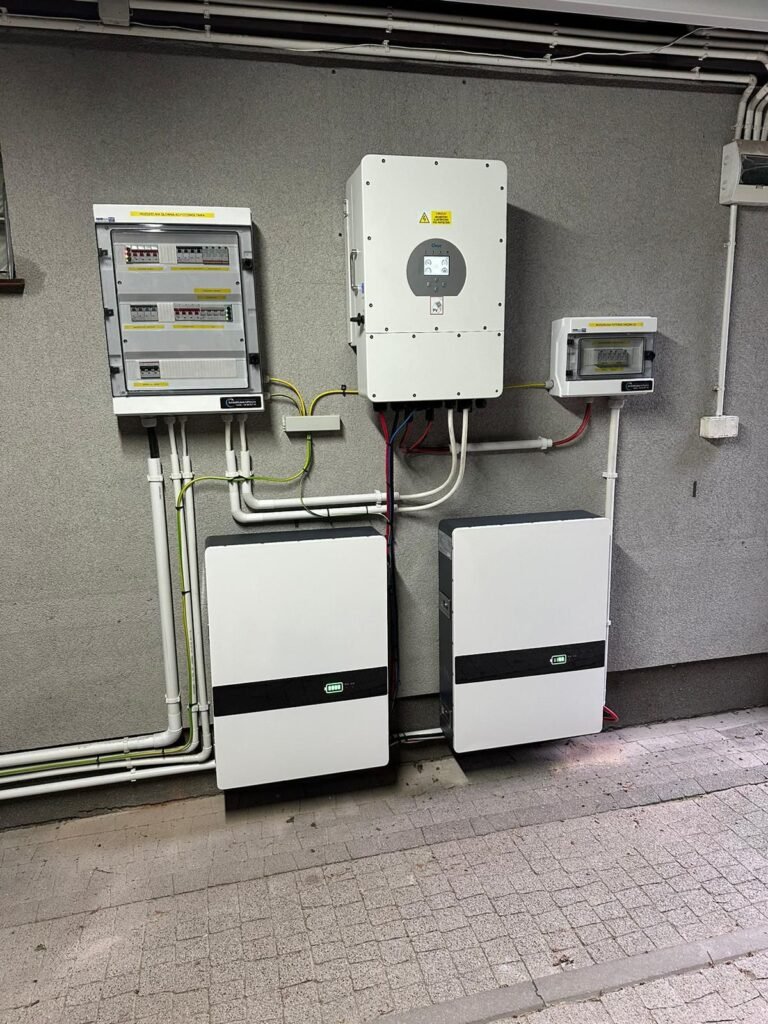
Factors to Consider Before Making a Decision
Initial Cost: A 3-kilowatt system may cost between $3,000–$5,000 depending on quality and market conditions.
Roof Space: Your roof should be tilted toward the south, free of shadows, and have enough space for the solar panels.
Sunlight in Iraq: With over 3,300 hours of sunlight annually, Iraq is highly suitable for solar energy.
Battery Need: For nighttime use or long outages, batteries are essential (with added cost).
Economic Feasibility: It depends on your current electricity source; if you rely on a generator, a solar system could save you significantly.
Estimated Costs and Payback Period
With Iraq’s abundant sunlight, solar energy systems are more appealing than ever, not only due to the electricity crisis, but also because of the sharp decline in component prices.
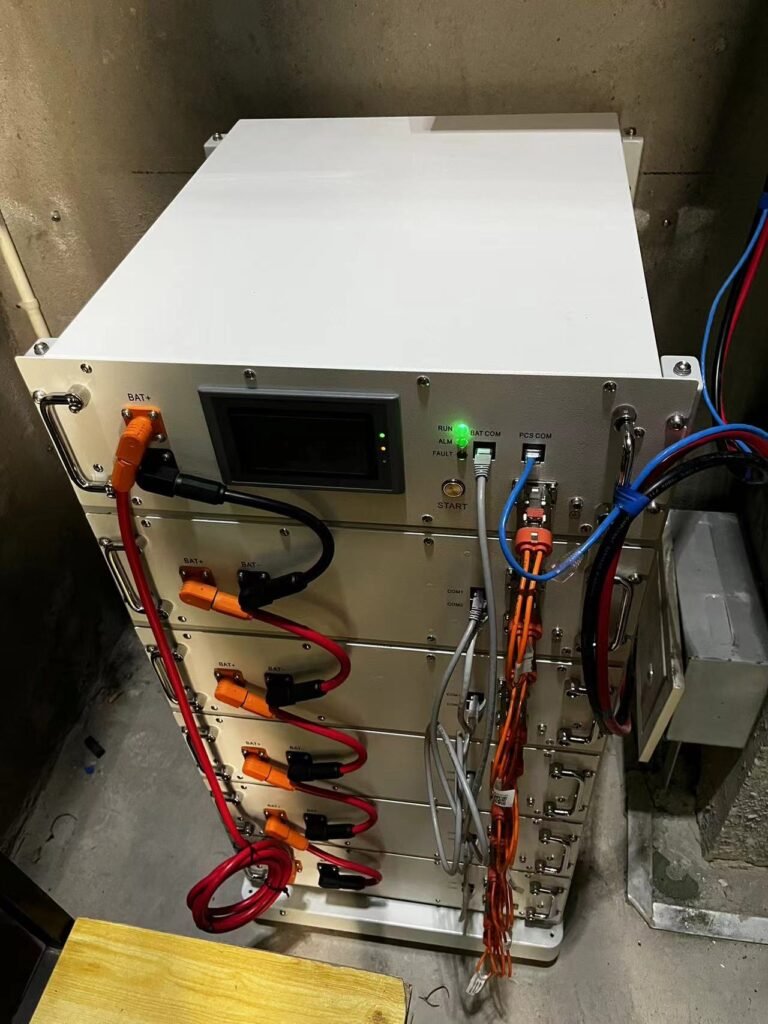
Falling Solar Panel Prices
Monocrystalline panels (150W) are sold for around $80–$120.
300W panels range between $150–$220, making mid-sized systems more accessible to many households.
Full Installation Cost (includes inverter, wiring, and batteries if needed):
Approximately $550–$850 per kilowatt of installed capacity.
This means a basic 3kW home system could cost $3,000-$5,000, depending on equipment quality and local market rates.
What Do You Get in Return?
A 3kW system can generate approximately 3,400 kilowatt-hours per year, enough to power most essential household appliances throughout the day
When Will You Recover Your Investment?
Based on current estimates, you can recover the cost of installing a solar system within 5 to 10 years, or even sooner if government support or financial incentives are available.
Are There Studies to Support This?
Yes! A study conducted in Iraq estimated that a 3-kilowatt system costs around $3,655 over five years, which is approximately 12% cheaper than relying on a diesel generator. Other research has shown that solar power reduces living costs and helps to cut harmful emissions, making it a solution that’s both eco-friendly and budget-conscious.
Conclusion: When Is Solar Power a Smart Choice?
Home solar power is an especially wise choice in Iraq if your home:
Faces frequent and severe power outages
Relies on costly private diesel generators
Has a roof suitable for installing solar panels
With abundant sunshine and high electricity demand, especially in the summer, solar energy offers significant savings and a strong return on investment.
However, if your home enjoys stable access to the national grid (which is rare at present) and your electricity bills are extremely low, solar may not be the most cost-effective solution in the short term.
In Summary:
Solar systems are highly beneficial for homeowners seeking energy independence, lower utility costs, and a cleaner environment. With the global and local drop in solar equipment prices, home solar energy is becoming increasingly attractive in Iraq, particularly for homes with high consumption and sunny roof space. In such cases, installation costs can be recovered in just a few years, followed by years of real savings
Finally, be sure to visit Ur’s official website to track updates on government solar funding.

